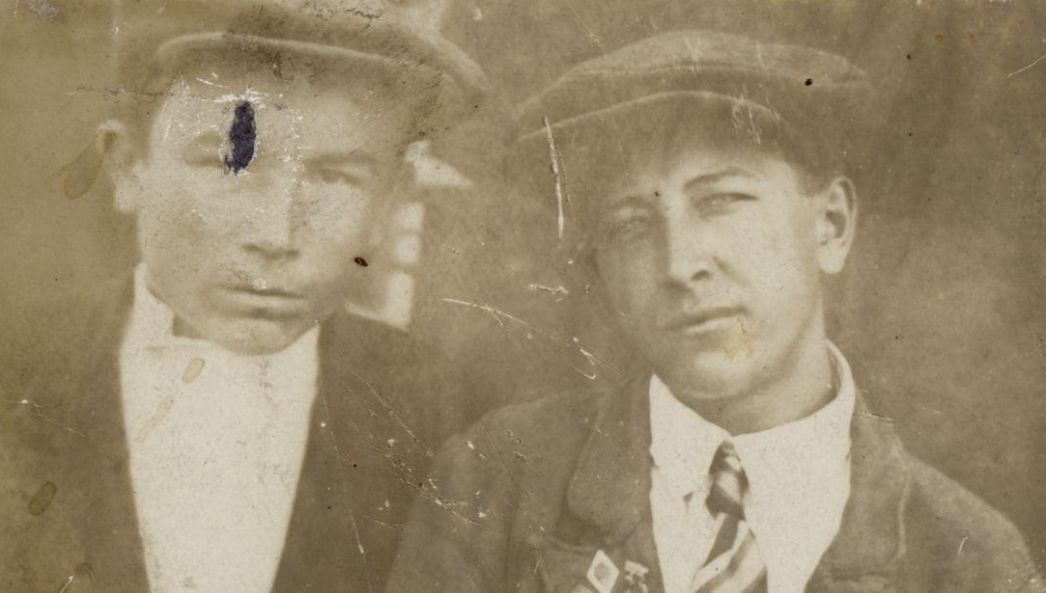Transcript
Aleksandr Makejew “Now I’m only between 2 and 3 kilometres from the German border. [...] I have been [...] stationed here for a month. Not a day goes by without something happening. [...]
Stay alive and healthy. Your son.”
Narrator When Aleksandr Makejew wrote these lines in 1941, he was stationed with the border troops of the Red Army. He was near Grodno in today’s Belarus, more than 1600 kilometres from home. This was the last of many letters his family received. When the Germans attacked the Soviet Union two weeks later, Makejew’s unit, too, was overrun. Thousands of soldiers were captured by the Germans.
Aleksandr Makejew was born in the Russian village of Obval in 1919. He grew up with five siblings. The family moved frequently in search of work. Aleksandr had many different interests and talents: He often wrote his letters as poems; he liked to draw and played several musical instruments. Early in the summer of 1937, he began training as a primary school teacher, which promised a secure future.
There was an urgent need for new teachers in the Soviet Union in those years. Mere weeks after starting his training, Aleksandr Makeev found employment in a school far away from his home and family. He taught in two shifts, soon working for two schools at the same time.
Aleksandr Makejew “I live in a wasteland, no one I know, not a soul. We have been delegated to work prematurely. Now [...] I teach both forms 1 and 3.”
Narrator He remained ambitious despite his loneliness and work. Taking correspondence courses, he continued to study for his teaching diploma, which he received late in 1939 with high marks. In his private life, too, he found happiness. He fell in love with his colleague Klava. They got married and planned their future together. But first he had to serve in the army. His many letters – often written with a mix of melancholy and hope – were his only way of connecting to his family.
Aleksandr Makejew “In the time leading up to the army, my life really got better than before in all respects, but this did not last. All in all, I do not mourn the past but hope for the future. It could be that, in a year’s time, perhaps in October or November 1941, if everything goes peacefully that is, I will be back from the army.”
Narrator Eight months after he wrote this, Makeev became a prisoner of the Germans. The conditions in the prisoner-of-war camps were disastrous: Countless Red Army soldiers died. At the same time, the SS demanded more and more labourers. When they asked the Wehrmacht to be given Soviet prisoners of war, the Wehrmacht promptly agreed. In autumn 1941, 2000 prisoners, now labelled “Work Russians”, arrived in Buchenwald. The inmates there were shocked at the sight of the new arrivals.
Unidentified Buchenwald inmate “The prisoners had lost so much weight, they were skeletons. Their clothes were torn; the long beards made their sunken-in faces look even more haggard. Shoes and boots were tattered and some of them had only rags wrapped around their feet.”
Narrator In Buchenwald, the prisoners of war were crammed in six isolated barracks, away from the other inmates. But contrary to their plans, the SS now had neither work for them nor any interest in what was to become of them. They left the men to their own devices. Some inmates organized help. But many were beyond help: Within the year, one in three prisoners of war had died of disease, forced labour and hunger.
Makejew died as early as January 1942. According to the camp administration files, he died of pneumonia. It was not until 1980, after decades of uncertainty, that his sister Ira learned where and how Aleksandr had died.


